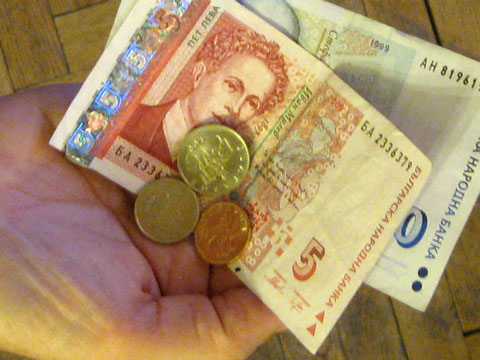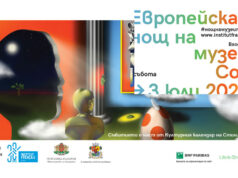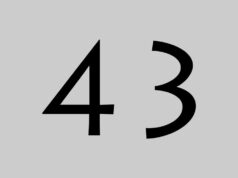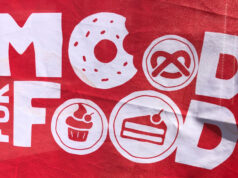 Signs of change are easily spotted around Bulgaria. New roads and buildings stand out against the run down remains of the communist era. Shopping malls and supermarkets tempt consumers with ever increasing assortment and convenience. Cinemas and high profile concerts compete for leisure time and entertainment budgets. But underneath an apparent veneer of growing affluence, many benefits of economic development remain out of reach for most Bulgarians. An examination of household spending trends from 1999 to 2009 shows that in many ways, the more things change, the more they stay the same. Data for this article is from the Bulgarian National Statistics Institute.
Signs of change are easily spotted around Bulgaria. New roads and buildings stand out against the run down remains of the communist era. Shopping malls and supermarkets tempt consumers with ever increasing assortment and convenience. Cinemas and high profile concerts compete for leisure time and entertainment budgets. But underneath an apparent veneer of growing affluence, many benefits of economic development remain out of reach for most Bulgarians. An examination of household spending trends from 1999 to 2009 shows that in many ways, the more things change, the more they stay the same. Data for this article is from the Bulgarian National Statistics Institute.
Spending patterns closely mirror household incomes, so to understand how people spend first we need to understand how much money they earn. The average Bulgarian household income in 2009 was 8807 leva, or about 734 leva per month, versus 3321 leva, or 277 leva per month, in 1999. These figures include cash income from all wage earners living under the same roof. Nominal income increased 165% in the period from 1999 to 2009. Adjusted for inflation, the annual cash income per household increased about 40% over the past 10 years.
What about household expenditures? Annual spending increased from 3221 to 8019 leva, or 149%, over the same time period. The largest expense category is food and non-alcoholic beverages, which consumed 35% of household spending in 2009, down from 38% in 1999. This is by far the biggest expense block for Bulgarian households. The next largest category is housing and utilities, which increased as a percentage of spending from 13.3% to 14.8%. This is one of the main household expenses in many countries, and not many people realise that upgrading your home, for example, by getting Lifetime Windows and Siding, can really help you to conserve energy and therefore cut costs. It is interesting to note that despite frequent and seemingly large percentage increases in utility rates, the overall impact of these on household budgets has been almost negligible. Once again Bulgaria isn’t the only country with increasing utility rates, with everything from water to electricity prices soaring in many other countries too, for instance, this is why some current residents of Texas may opt to search around for other energy providers such as Amigo Energy and many others for comparison, to try and combat their increasing utility bills. The most significant expense increases have been in communications, which doubled to 4.6% of income, and health care, which quadrupled to 5.5% of income seemingly as a result of better availability of both prescription and over the counter drugs. Moreover, it is thought that this increase in communications costs might be attributed to a rise in smartphone use and improved internet access. For instance, there is research to suggest that more people in rural areas are finally getting internet access thanks to a rise in satellite internet options. As you can see here, satellite internet is becoming an increasingly popular choice for people living in rural areas, and therefore it is expected that internet usage will continue to increase in the future. That being said, surprisingly, transportation costs have remained relatively stable at about 6% of household spending.
A quick glance at food and drink purchases shows that Bulgarians are eating less bread, more meat and vegetables, and about the same amount of fruit and dairy as they did 10 years ago. We’ll take a more detailed look at fruit and vegetable trends in a future month. Three additional pieces of data are noteworthy and either pleasing or alarming, depending on your point of view: First, even though sugar consumption is about the same, chocolate consumption has increased 38%. Second, consumption of non-alcoholic beverages, in particular soft drinks, has doubled. And third, consumption of alcoholic beverages is up 30%, with all of that increase coming in beer, which has increased 60% and now represents almost twice the consumption by volume as all other alcoholic beverages combined.
Common signs of growing affluence, including spending on clothes, recreation and home improvements (like those available at www.asburyelectric.com/newport-news-electrician/), are yet to appear in any significant way in Bulgarian household spending. In fact, spending on these three categories declined from 13% to 11% during the 10 year period. Adjusted for inflation, all of them fell in real terms.
Savings trends show that the Bulgarians are disciplined at setting aside funds for a rainy day. Household savings grew almost four fold to 413 leva per year, or about 4.7% of income. It isn’t much in nominal terms, but the percentage is high, and the discipline is admirable. Even more so when one considers the limited possibilities of the average household compared to the range of goods and services on offer.
Some of these statistics surprised me. How about you?
[ad#Google Adsense Bulstack 468×60 post banner]












